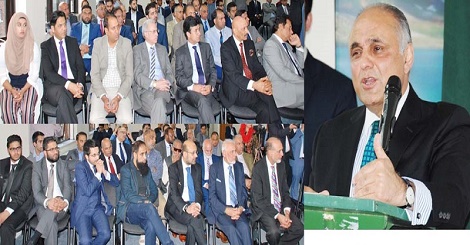Danny Steven Kay – Conviction for Rape Quashed

- On 23rd September 2013, in the Crown Court at Derby before Mr Recorder Elsom the applicant was convicted by a majority of 10 to 2 of an offence of rape of A. He was acquitted of two further counts of rape of a different complainant, B.On 11th November 2013, he was sentenced by the trial judge to 4 years and 6 months’ imprisonment.
- He now applies for an extension of time of approximately 2 years and 5 months in which to apply for leave to appeal against conviction.His applications have been referred to the full Court by the Registrar.
- The provisions of the Sexual Offences (Amendment) Act 1992 relating to the reporting of this case apply.No matter relating to a complainant in this case shall during that person’s lifetime be included in any publication if it is likely to lead members of the public to identify that person as the victim of that offence unless waived or lifted in accordance with s.3 of the Act.
Facts: 4. The applicant is now 26 years of age having been born on 26th April 1991. In 2011, when aged 20, he was in a relationship with B, who was 4 years younger than him. That relationship, which had been intermittent, finally ended in December 2011. B made an allegation that the applicant had assaulted her, making a witness statement on 24th December 2011. On 26th April 2012, he was sentenced for common assault of B. Subsequently, in early August 2012, she alleged she had been raped by the applicant towards the end of their relationship on two occasions.
- Around the 1st of February 2012 the applicant approached the complainant A, who was also almost 4 years younger than him having been born on 11the July 1995, on Facebook.They exchanged messages on Facebook as well as their telephone numbers and arranged to meet in person. B noted the Facebook exchange and contacted A, advising her against involvement with the applicant. Nevertheless, A did meet the applicant in person after assuring B that she would be careful.
- On 28th July 2012, in an ABE interview, A alleged that the applicant had raped her in early February 2012 on the sofa in his living room.The applicant was arrested. When interviewed on 3rd August 2012 he initially denied knowing A, but later recalled her when her workplace was mentioned. He said that they had had consensual sexual intercourse on one occasion. In evidence, he said that he had met A on 2 occasions and had consensual sexual intercourse with her on the second and final meeting.
- On 3rd and 8th of August 2012, in ABE interviews, B alleged that the applicant had raped her on two occasions in December 2011.When interviewed, he denied he had raped her. In evidence, he said they had been in a sexual relationship but denied that there had been any act of sexual intercourse with B on the occasions he was alleged to have raped her.
- The defence case at trial was that the only plausible explanation for the failure by both B and A to report matters promptly and the inconsistencies in the evidence, to which we shall refer, had been that they had concocted false allegations for their own purposes or had influenced or colluded with each other, thus impinging on their credibility and reliability.
- The issues for the jury were whether, in the case of B’s allegations, the acts of intercourse had taken place at all and, if so, whether they were acts of rape, and, in relation to A, whether they were sure that she had not consented and that the applicant had not reasonably believed that she had consented.
Discussion: 10. The admission of fresh evidence is governed by section 23 of the Criminal Appeal Act 1968. Evidence may be received if it is necessary or expedient to do so. The applicant must satisfy the court that (1) the evidence appears to be capable of belief; (2) it affords a ground for allowing the appeal; (3) it would have been admissible at trial; (4) there is a reasonable explanation for its not having been adduced at trial.
- It is the applicant’s case that this new material in relation to the Facebook conversation was not available until after conviction, that the collation and consideration of the papers took some time, the delay is not the fault of the applicant and it is in the interests of justice to grant the extension of time sought.
- The evidence is clearly capable of belief and would have been admissible at trial.The controversial areas are whether it affords a ground for allowing the appeal and the reasonableness of the explanation for it not having been adduced at trial.
- It is submitted that the evidence of the full message exchange goes directly to the veracity of both A and the applicant.A deleted a total of 29 separate messages sent and received in February and March 2012 from the record. A comparison between the version of the messages in the exhibit before the jury and the full exchange reveals that the messages deleted were selective. In consequence, a number of significant and misleading impressions were given in the edited trial version.
- The contact began on 1st February 2012, A responding to the applicant adding her as a friend, A indicating she did not mind and saying that she was only nearly 17.The ensuing messages, which were deleted from the version before the jury, were the applicant asking A whether she was single and her saying that she was. However, in the jury’s version, the applicant had apparently responded ‘me too’ to her message that she was 17. This was something about which he was vigorously cross-examined. His evidence was that he never indicated he was the same age as her: the full exchange of messages reveals he was telling the truth.
- Another, more significant consequence of the jury having the deleted version was that it supported A’s account that the only contact after the alleged rape was to do with A’s concern as to her pregnancy and the taking of the ‘morning after’ contraceptive pill.Although there was a gap in Facebook messages they resumed on 19th March with the applicant asking A for her phone number as his phone had deleted it. She immediately provided it ending her message with kisses. These messages were deleted from the version before the jury. Two days later, between 21st and 23rd March, there was another exchange of messages, whose edited version before the jury gave a very misleading context for his message “sorry”, which was in fact in response to her asking him why he was ignoring her. Her response, again edited from the jury’s version was “Dent be”. In its edited form before the jury, the context was capable of being construed as an apology for something that had happened between them. Far from being evidence supportive of A’s account of events, the full version of the exchange not only undermined her account but also supported the applicant’s version. Although the jury was aware of a large number of text messages being exchanged, there was no evidence of their content. The exhibit of the edited Facebook entries was of obvious significance in a case of one person’s word against another and, indeed, during their deliberations, the jury requested a colour copy. Mr Rule submits that the full Facebook message exchange both contradicts the prosecution’s case, based on A’s evidence that after 17th February there was very little contact between the two of them both in terms of the frequency and nature of contact, and goes to support the applicant’s case that he was being truthful and that the act of intercourse was consensual.
- The applicant was aware prior to and at the time of trial that the Facebook messages exhibited were incomplete and that further messages existed.In his witness statement dated 5th April 2016 he states that “at the time of trial I believed I had tried everything I could to obtain this evidence. I contacted Facebook to no avail and I browsed through all the messages in my inbox folder. I was not aware that an archive folder existed and this was not obvious on viewing the webpage.” The Respondent submits that no great expertise was required to locate the archive folder and there is no evidence as to why he left it until after the trial to seek assistance from his brother or someone with greater knowledge of Facebook than he had to assist him in his endeavours. However, the applicant was repeatedly urging the prosecution to obtain the full Facebook exchange and the police had his phone and laptop and could have accessed his Facebook account.
- We have come to the conclusion that, in a case of one word against another, the full Facebook message exchange provides very cogent evidence both in relation to the truthfulness and reliability of A, who, in any event, gave a series of contradictory accounts about other relevant matters, and the reliability of the applicant’s account and his truthfulness.We are, of course, mindful of the approach directed by R v. Pendleton [2002] 1 WLR 72, HL. We are satisfied that this further evidence does raise a reasonable doubt as to whether the applicant would have been convicted had it been before the jury, thus rendering the conviction unsafe. We also consider that there is, in the unusual circumstances of this case, a reasonable explanation for the failure to adduce the evidence at the trial.
- The delay in bringing the appeal was not excusable.However, the overriding consideration is whether it is in the interests of justice that the time limit should be extended. Given our view as to the merits of the appeal and the reasons for the delays, we are prepared to grant leave, extend time and admit the fresh evidence which we find affords a proper ground for allowing the appeal. In the light of the new evidence, we consider that the conviction is unsafe and we allow the appeal.
- In these circumstances it is not necessary to consider in detail the first ground of appeal relating to the direction to the jury on consent.In summary, the submission is that, firstly, the direction failed to differentiate between a demand by an offender, overbearing free will, and a desire or intention by a partner to have sex, thus setting the threshold for conduct that would qualify as constituting the offence at a level lower than the law properly provides. Secondly, it is argued that the terms of the direction removed as an issue of fact from the jury what was a vital second issue, namely, proof of no reasonable belief in consent.
- Although the direction was not helpful in its precise terms, the Recorder made plain that the absence of consent and of any reasonable belief by the applicant of consent must be proved by the prosecution to the requisite standard.It was not left solely on the basis that if the jury believed A’s evidence about the matter then the applicant was guilty. The Recorder went on to emphasise that it was for the prosecution to prove not only lack of consent but also that the applicant did not have a reasonable belief that she was consenting. Accordingly, there is no merit in this ground of appeal.
21.We note in passing and with some concern that the jury was not assisted by written directions as to the elements of the offence that had to be proved or a route to verdict. The Recorder relied solely on reference to the Indictment supplemented by his oral explanations and directions. Given the different issues relating to the two complainants and the nature and features of the case, we are of the clear opinion that, as is now directed in CPD VI 26K.12, written directions or a route to verdict would have been of great assistance.
Decision: 22. We quash this conviction. Having been informed that, in the event of the appeal being allowed, the Respondent would not seek a retrial we make no further orders.





